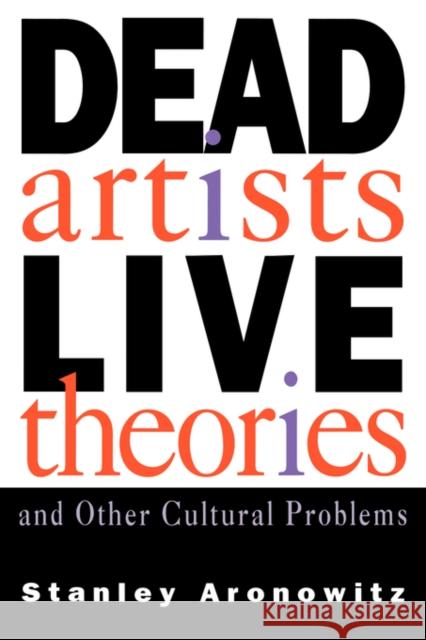Dead Artists, Live Theories, and Other Cultural Problems » książka
Dead Artists, Live Theories, and Other Cultural Problems
ISBN-13: 9780415907385 / Angielski / Miękka / 1993 / 336 str.
Dead Artists, Live Theories, and Other Cultural Problems
ISBN-13: 9780415907385 / Angielski / Miękka / 1993 / 336 str.
(netto: 134,67 VAT: 5%)
Najniższa cena z 30 dni: 125,88
ok. 16-18 dni roboczych.
Darmowa dostawa!
In these essays, Stanley Aronovitz examines some of the crucial cultural shifts associated with the crisis of modernity. Against the predominant view that Great Art possesses intrinsic aesthetic value, the author contends that aesthetics has itself been surpassed. In the introductory essay, Aronowitz argues aesthetics, like mathematics education, is a powerful sorting machine which preserves the hierarchical system of cultural and economic privilege. In his essays of Bakhtin and Williams, he stresses that their work shows literary and other artistic works as forms of social knowledge; even bad literature may illuminate everyday life and the structure of feeling far better than ethnographic, historical and sociological studies. Yet he insists that art does not represent the lifeworld, but can be understood as constitutive of it. We read novels, watch TV and videos for pleasure, but art produces experiences as much as it registers it. The essays all take on the crisis in modernity: whether in educational controversies, Murray Bookchin's social ecology, Roland Barthes as a star, the anti-aesthetics of postmodernism, or recent transgressions in the philosophy of science.











